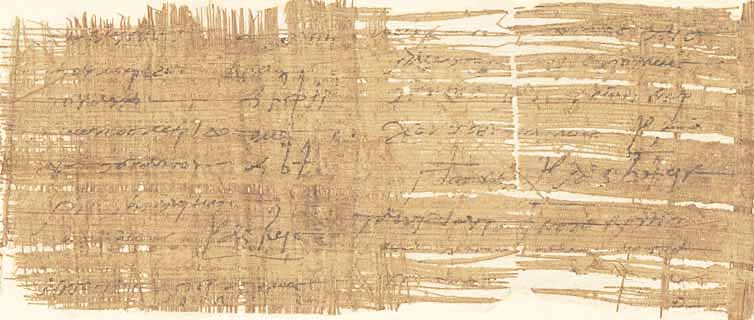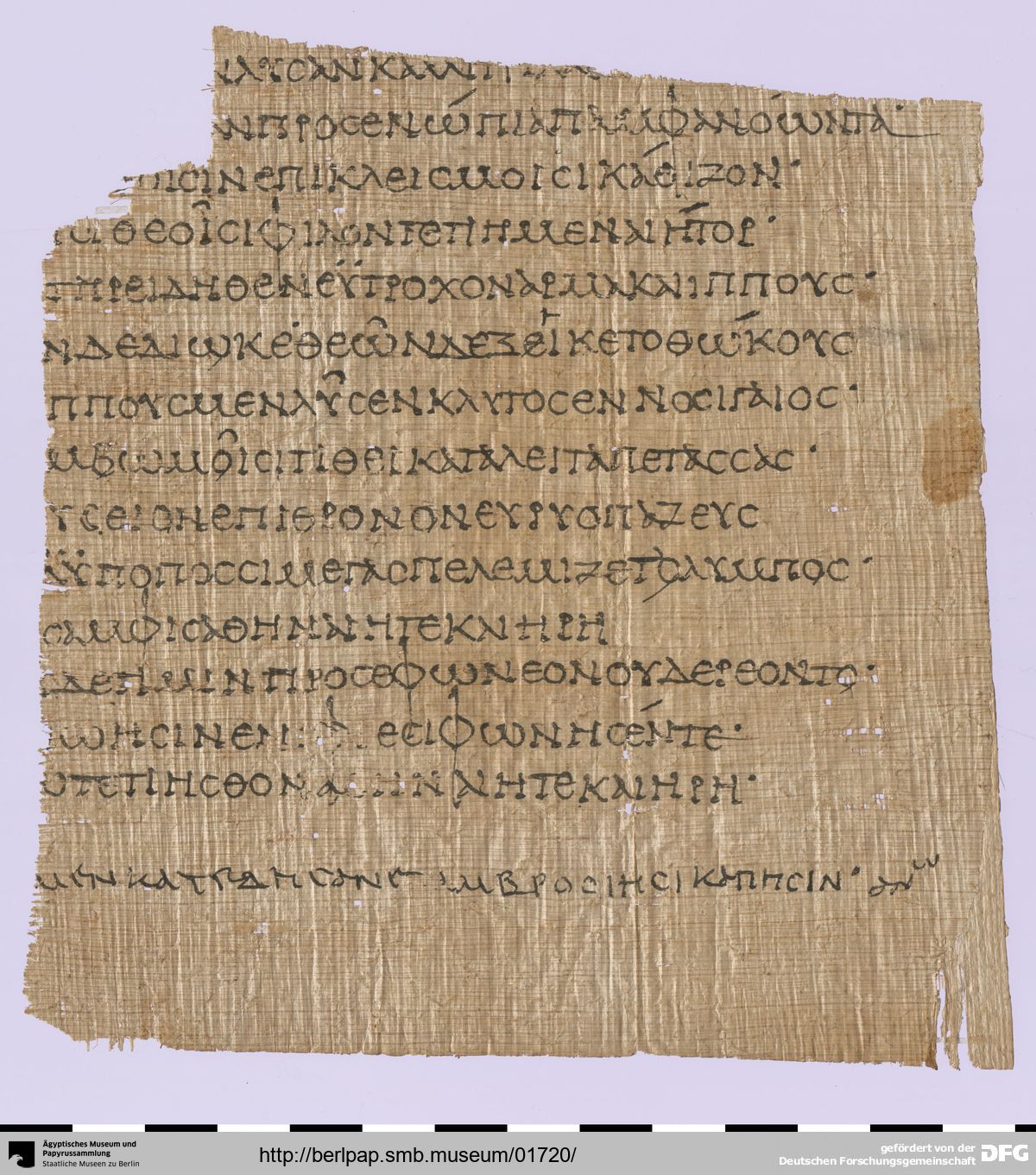BKT V.1, 3 (P. 6845)
The Iliad is probably the best known of the epics of the Greek poet Homer and has been regarded as a masterpiece of literature from antiquity until today. The main subject of the work is the Trojan War, the legendary war between Greeks and Trojans, which was provoked by the abduction of the beautiful Helen and led to the ten years lasting siege of the city of Troy. Only with a ploy of the cunning Odysseus the Greeks were able to overcome the massive walls of the city and gain victory.
Homer is known to be the earliest poet of the Occident, although the exact dates of his life cannot be reconstructed. Most modern scholars believe him to have lived during the second half of the 8th century AD. In antiquity Homer was already esteemed as the one great poet of the ancient times, his works being seen as classics of literature and hence frequently read, copied and spread through the countries.
The fragment of this copy was probably written between the 1st and the 2nd century AD. It shows the lines 433–447 of the 8th book, which deals with the deities who tried to alter the outcome of the war, having sided with either the Greeks or the Trojans. Zeus, king of the gods, calls in a gathering of all gods and forbids everyone to interfere with the conflicts of the humans. This fragment contains the part in which the arrival of the gods at Mount Olympus is described.
The Text is written in a tidy bookhand. The script is on the recto of the papyrus running in straight lines parallel to the fibre of the papyrus. Diacritical signs such as dots and accents can be seen above each line providing information about how the text was to be read. Slightly removed from the rest of the text, the last line is a later addition, probably inserted in the lower margins of the sheet due to an accidental omission during the earlier process of copying the text.



